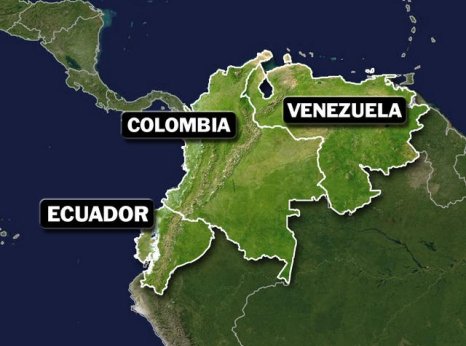Colombia: Stop Harassment Against Fishing Community

The Magdalena Medio is an extensive valley between Colombia’s mountain ranges, traversed by the country’s main river, the Magdalena. Petroleum is a major economic activity: Colombia’s largest refinery operates in Barrancabermeja, the region’s urban centre. The area is also home to agro-industry, mining, and livestock. Because of its location and abundant resources, the region is considered strategic and has long been disputed by the State and armed groups. It has also been a hub of popular mobilisation and human rights advocacy for decades: unions, feminist organisations, grassroots movements, and human rights defenders have built a strong civic space. In this context, violences has been persistent against human rights defenders since at least the 1980s. In recent years, the region has recorded alarming levels of violence against civilians, particularly homicides and forced displacements, amid clashes between armed groups, including the Ejército Gaitanista de Colombia (EGC), also known as AGC or Clan del Golfo, the country’s largest armed group with the broadest regional control.
The Federation of Artisanal, Environmentalist, and Tourist Fishers of Santander (FEDEPESAN) works in Ciénaga de San Silvestre, near Barrancabermeja. In addition to promoting sustainable fishing, they monitor water quality and biodiversity, including endangered species such as the Antillean manatee. Together with the human rights organisation CREDHOS, FEDEPESAN filed a collective legal action that led to a July 2025 ruling confirming that water pollution in the San Silvestre area violated the right to a healthy environment and ordering accountability. FEDEPESAN has also denounced pollution by regional companies, corruption by environmental authorities, and the presence of armed groups seeking control of the territory and its water bodies.
In this context, FEDEPESAN´s president Yuly Velásquez has experienced numerous forms of violence documented by Amnesty International, including a threat in November 2020, bullet impacts on her home in January 2021, intimidations during protest activities in August 2021, firearm attacks in May and July 2022 (injuring a security guard of her protection scheme). Amnesty International has issued Urgent Actions asking the Government to effectively protect FEDEPESAN from threats in June 2022, July 2022, February 2024, March 2024, and January 2025. FEDEPESAN received the 2024 Human Rights Award by Amnesty International Germany for their work protecting the water, the environment and the rights of the artisanal fisherpersons.
Amnesty International has monitored State actions to detect the risks faced by the fisherpersons of Barrancabermeja, such as the early warning AT 027 of 2022 by the Ombudsperson Office and meetings of the early warnings follow up commission CIPRAT led by the Ministry of Interior. Nevertheless, threats and other forms of pressure persist, as does the need for more comprehensive protection measures.
On 15 February 2025, FEDEPESAN leaders publicly announced they felt forced to leave their territory. Then, 26 fisher families from Ciénaga de San Silvestre, Ciénaga de Chucurí, Ciénaga de Cira, and the Sogamoso and Magdalena rivers in Barrancabermeja were displaced to Bucaramanga. Amnesty International called for protection for the displaced families, who agreed to return in mid-August, following dialogue between FEDEPESAN and regional and national authorities, if their safety was guaranteed.
During this displacement, on 4 August, FEDEPESAN member Janeth Millán was evicted from her home in Las Parrillas, Barrancabermeja, near Ciénaga de San Silvestre. She had lived there for 18 years, was part of the local community association, is recognised as a victim of the armed conflict, belongs to an Indigenous community, lives in extreme poverty, and is the sole carer of two underage daughters. For years, she has legally defended her right to remain in her home, which was apparently built on land owned by Ecopetrol, where she arrived after being forcibly displaced from another municipality in Santander. Her legal struggle intensified four years ago when a man appeared, claiming ownership of the land, demanding rent or her departure, and threatening her. Janeth reported that he forced her to sign a contract against her will, which was later used to formally request her eviction. Despite her legal actions, she was thrown out of her home with her daughters, her belongings left on the street, and, according to FEDEPESAN, a police officer assaulted her and another federation member during the eviction.
Shortly after the return of the 26 families, on 27 August, Barrancabermeja’s Secretary of Environment and Energetic Transition issued Resolution 2571, ordering the suspension of a modest meeting place of ASOPESCASAN, a FEDEPESAN member association, near Ciénaga de San Silvestre. The site, a small wooden structure with a palm roof, is used to coordinate artisanal fishing activities. The Secretary did an inspection with the Biodiversity and Animal Protection Group of the Rural Carabineros Police and argued that the structure affected the riparian zone and thus constituted an environmental offence. However, the site sits on a small strip of land between a road and Ciénaga de San Silvestre, where nearby houses already exist, and the lake’s shores host public venues and clubs a few kilometres away. Authorities have not offered alternatives for ASOPESCASAN to have a meeting place by the Ciénaga and continue their fishing and environmental monitoring practices.